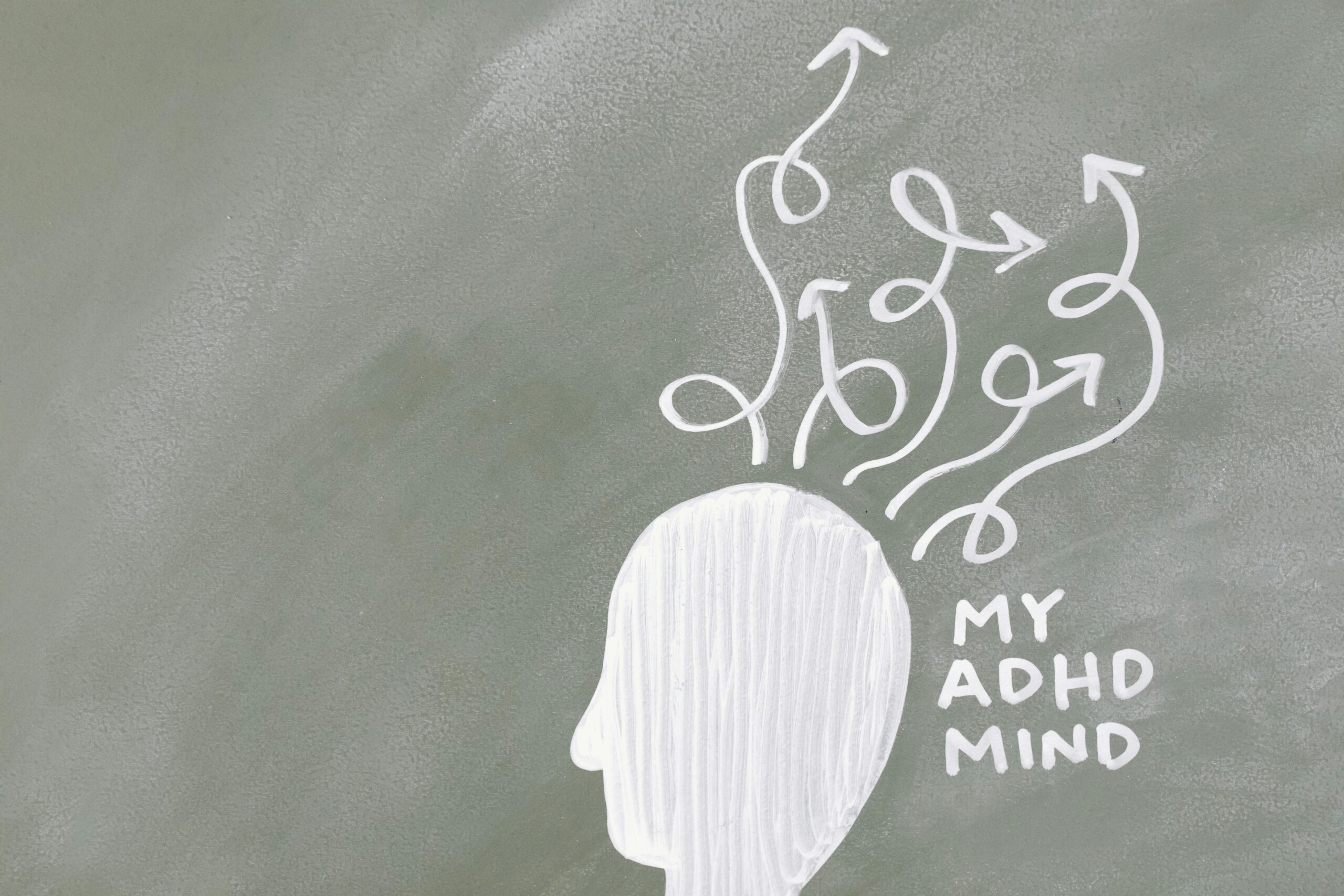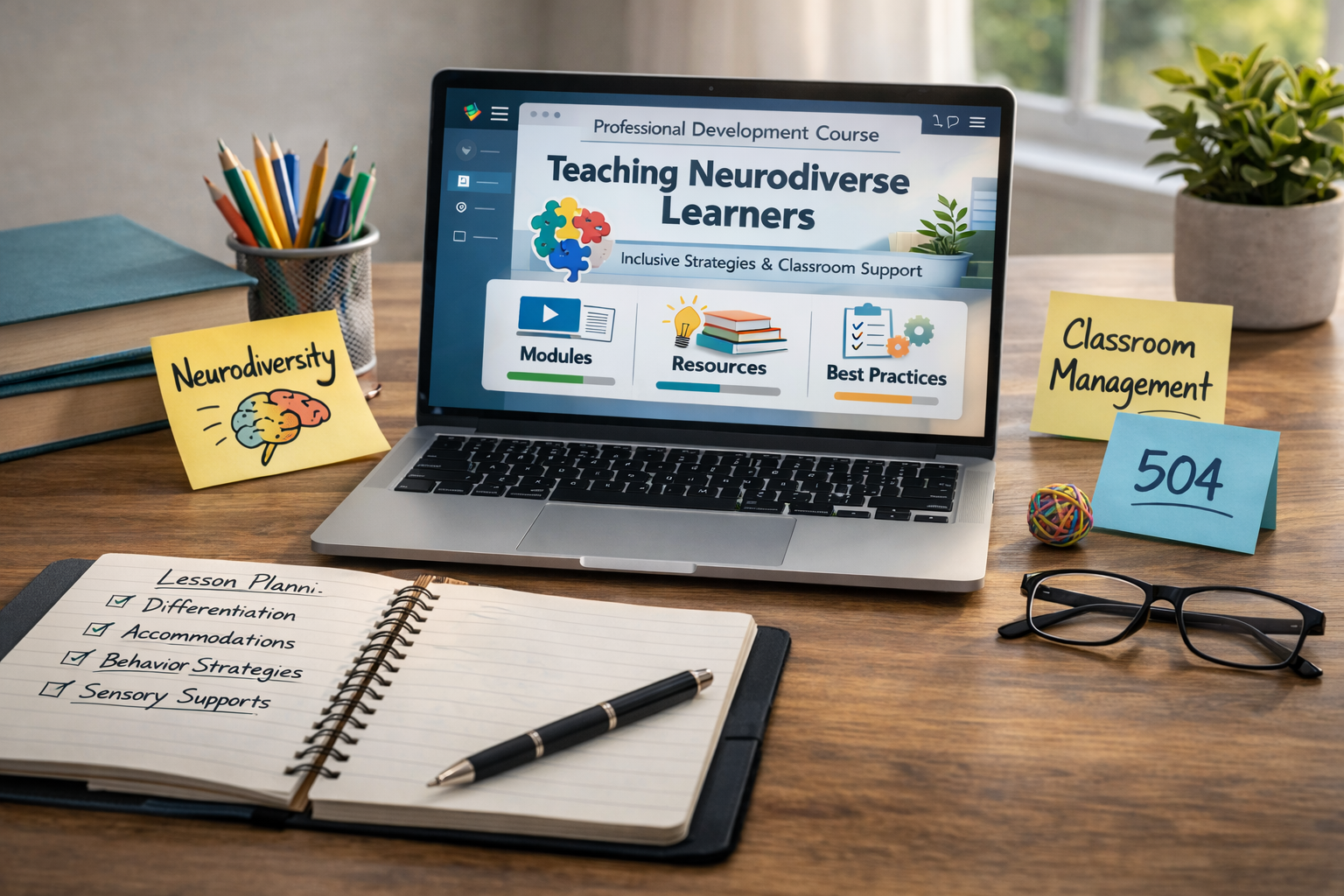Celebrating ADHD Awareness Month 2024

National ADHD Awareness Month 2024 is here, and that means it’s time to think about how we can support the amazing people in our lives who are struggling with neurodiversity. This year's theme is "Awareness is Key!", and organizations nationwide focused on ADHD advocacy are coming together to share resources, bust myths, answer common questions, and start conversations about how we can all create a more inclusive world.
This has never been more important for frontline professionals in education and healthcare, and courses like ADHD Unmasked - Recognizing and Reshaping Girls’ Learning Experiences and ADHD in Focus: Spotlight on ADHD in Girls provide foundational skills for identifying and supporting ADHD across the spectrum. And, of course, if you’re one of the millions of Americans who are in the ADHD “friends and family” club, the more we all know about supporting neurodiversity, the better everyone’s outcomes will be.
How can you get involved? Glad you asked! Here’s everything you need to know this October to celebrate ADHD Awareness Month 2024.
ADHD Is Personal
One of the most important maxims of ADHD is, “If you’ve met one person with ADHD, you’ve met one person with ADHD.” Everyone’s experience of neurodiversity is different, and while there are big-picture concepts that can guide how we manage ADHD, it’s still all about understanding and supporting individuals.
ADHD symptoms tend to cluster around three primary types, and each person will experience their own unique balance.
- Inattentive: Reduced executive function results in difficulty choosing what to focus on and sustaining attention.
- Hyperactive-impulsive: This includes symptoms like fidgeting, excessive talking, and an inability to regulate impulsive actions among others.
- Combined: A blend of both inattentive and hyperactive-impulsive symptoms.
One of the biggest misconceptions about ADHD is that inattentiveness and hyperactivity are required for diagnosis. Not true! ADHD is a complex disorder, and the uniqueness that accompanies a diagnosis is one of the things that makes educating people so difficult. There is no single presentation or set of challenges to be informed on, and that’s why providing reliable and meaningful information is the #1 focus of ADHD Awareness Month 2024.
Why Is ADHD Awareness Such a Big Deal?
With an estimated 7 million young people between the ages of 3-17 and nearly 9 million adults diagnosed in this country every year, almost everyone will find their life touched by someone with ADHD. That means roughly 1 in 10 children in the classroom will be on the spectrum, and professionals in people-heavy industries like healthcare will be expected to provide support.
ADHD is a lifelong condition that can have serious downstream effects. People with ADHD often struggle with relationships, finances, and their professional life. They are also at higher risk for anxiety, depression, and substance abuse as a result, and these challenges can quickly become overwhelming without healthy and widespread support and awareness.
On top of that, ADHD also presents a gender disparity: boys are four times more likely to be diagnosed than girls. For a variety of reasons, girls tend to display fewer behavioral problems associated with a classic ADHD diagnosis. Their symptoms may be misinterpreted—in some cases for gender-biased reasons—as disengaged, forgetful, or simply bored. However, this masks the very real fact that they are experiencing real challenges that can dramatically impact their current and future success.
That’s why the message this October is so simple: with a little knowledge and awareness, it doesn’t have to be this way! By identifying ADHD earlier and providing appropriate professional and personal support, people with ADHD can receive the clinical and social resources they need to be successful.
How Can You Participate?
There are many ways to take part in ADHD Awareness Month 2024 that can make a lasting impact beyond this October. Here are some of the easiest ways to get involved and start spreading the word.
Celebrating in the Workplace
People with ADHD often experience work-related challenges, and professionals in nearly any industry can benefit from awareness about the people they come into contact with. You can help make your place of work a more inclusive and supportive space through any of the following activities.
- Show your support by wearing the orange ADHD awareness ribbon.
- Create conversation to dispel common myths about ADHD.
- Support fact-based awareness of ADHD.
- If anyone at work self-identifies as having ADHD, allow them to share their experiences.
- Consider creating team participation in fundraising activities.
Encourage Personal Expression
If you know someone with ADHD, encourage them to also be involved and support ADHD Awareness Month 2024 by sharing their experience. Self-expression is a thoughtful and meaningful way for people to personalize the information being shared, creating a human connection to knowledge that may be new for many.
Art, photography, poetry, stories, interviews, and even simple conversations give a voice to those with ADHD that again humanize experiences that may seem foreign to those not affected. Positive feedback from personal expressions can also validate the struggles experienced by people with ADHD.
Social Media
Few resources reach large numbers of people as effectively as the major social media platforms available worldwide today. With a simple click, content, links, and messages can all be posted and shared on a variety of important topics. You can also use social media to promote charitable events and links to educational resources.
Social media also offers an opportunity to attract attention through humor. With countless memes out there comically depicting the challenges experienced by those with ADHD, tasteful humor is a great way to channel people’s attention for the greater good.
Don’t Hesitate to Celebrate ADHD Awareness Month 2024!
ADHD has gained significant attention, but there is still so much work to be done. It represents significant but sometimes subtle challenges to people’s lives, and without a personal connection to what living with ADHD is like, avoidable negative outcomes will continue to impact us all in a variety of ways.
Premiere is committed to raising awareness for neurodiversity and creating industry-changing educational content for professionals in a wide range of people-oriented roles. Courses like The Family Tree of Comorbidities for Adults with ADHD, created by Megan Arbour Ph.D., RN, CNM, CNE, Associate Professor, Frontier Nursing University and Jenna Lapointe, Licensed Independent Clinical Social Worker, Mental Health Therapist, Betterhelp, are vital resources that empower frontline workers to make a difference for the people they serve.
All of Premiere’s content is created by industry experts and helps educators and healthcare workers develop their careers and meet professional obligations with the touch of a screen.


.png)



